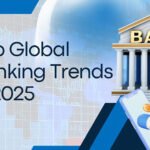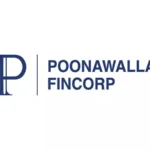The global banking landscape in 2025 is experiencing a wave of change—fueled by emerging technologies, shifting customer behavior, and mounting environmental responsibilities. While these changes bring opportunities, they also introduce new vulnerabilities and public accountability.
Let’s explore three major trends and threats shaping the future of banking across markets: AI-augmented fraud, digital disruption from fintech, and controversy over fossil fuel financing.
🤖 UK Banks Grapple with AI-Powered Fraud
In the United Kingdom, the financial sector is on high alert following a surge in AI-augmented fraud, with over 3.3 million cases and more than £1 billion in losses recorded over the past year. Fraudsters are now leveraging artificial intelligence tools to create sophisticated, hard-to-detect scams.
How AI Is Being Exploited by Criminals:
- Voice Cloning: Imitating trusted voices to execute phishing calls targeting high-value accounts.
- Deepfakes: Generating realistic but fake video or audio messages that bypass manual verification processes.
- Smart Phishing: Using AI to craft personalized emails and messages that appear authentic.
Bank Responses:
- AI-Powered Defense Tools: Financial institutions are deploying AI models that detect suspicious behavior patterns in real time.
- Enhanced Identity Verification: Many banks are rolling out biometric authentication, including facial and fingerprint scans, to secure customer interactions.
- Public Awareness Campaigns: Banks are working closely with regulators and cybersecurity agencies to educate customers on identifying and avoiding fraud.
Customer Impact:
While security layers may become more rigorous, these changes are essential for protecting digital assets and sensitive financial data. Customers are encouraged to use multi-factor authentication and remain cautious with unsolicited messages or calls.
💻 Traditional Banks Struggle to Keep Pace with Fintech Rivals
The rise of digital-native financial platforms continues to challenge the dominance of traditional banks. According to a recent industry report, legacy banks are losing ground in key customer segments, particularly millennials and Gen Z, who demand fast, mobile-first experiences.
Why Fintech Is Winning:
- Smoother Digital Onboarding: Fintechs offer instant KYC, digital account setup, and seamless user interfaces.
- Lower Fees, Higher Flexibility: Many challenger banks provide free accounts, better forex rates, and innovative financial tools.
- Faster Innovation Cycles: Without the burden of legacy systems, fintechs are rapidly launching products driven by AI, open banking, and blockchain.
Challenges for Traditional Banks:
- Outdated Core Banking Systems: Many legacy banks still operate on decades-old infrastructure, limiting agility.
- Cultural Resistance to Change: Internal bureaucracy and risk aversion can slow down digital transformation.
- Fragmented Customer Experience: Disconnected systems across departments lead to poor personalization.
Opportunities Ahead:
To stay competitive, traditional banks must:
- Invest in end-to-end digitization.
- Forge partnerships with fintech startups to accelerate innovation.
- Focus on data-driven, personalized services that align with modern customer expectations.
🔥 Fossil Fuel Financing Sparks Global Concern
Despite growing commitments to climate action, the banking sector collectively increased its fossil fuel financing to $869 billion in 2024, raising eyebrows among environmentalists and ESG-focused investors.
Key Areas of Concern:
- Oil and Gas Exploration: Major banks continue to fund exploration and extraction projects in both developed and developing economies.
- Coal-Fired Power Projects: While many institutions have pledged to exit coal, several continue to finance legacy projects.
- Greenwashing Accusations: Critics argue that some banks label their portfolios as “green” while simultaneously expanding fossil fuel exposure.
Bank Justifications:
- Energy Transition Financing: Some banks argue that financing is being directed toward “transitional” projects (e.g., natural gas) as a bridge to renewables.
- Developing Market Dependency: In many parts of the world, coal and oil remain crucial for infrastructure and employment, complicating rapid divestment.
- Client Demand: Large corporate clients continue to seek financing for traditional energy ventures.
Response from Stakeholders:
- Investors are demanding more transparency in climate-related financial disclosures.
- Regulators are introducing ESG-linked compliance standards, especially in Europe and North America.
- Activists are pushing for stricter climate-risk stress testing and transition planning within bank portfolios.
What It Means for Customers:
If you’re an environmentally conscious investor or consumer, these developments offer a reason to:
- Explore green banking products, such as sustainable bonds or ESG funds.
- Choose banks with clear, time-bound net-zero commitments.
- Track how your financial institutions align with your environmental values.
🔎 Final Takeaways: A Sector in Transition
| Trend | Risk/Challenge | Industry Response | What You Can Do |
|---|---|---|---|
| AI-Powered Fraud | Losses, identity theft | AI security, biometrics | Stay vigilant, use strong authentication |
| Fintech Disruption | Customer attrition, slow innovation | Digital transformation | Compare options, prioritize usability |
| Fossil Fuel Financing | Reputational risk, ESG backlash | Transition plans, climate disclosures | Align with ethical finance institutions |
🌐 The Road Ahead
The banking industry is in the midst of a rapid evolution, balancing innovation with integrity, and customer experience with ethical responsibility. For banks, survival means adapting to a tech-first, ESG-aware world. For customers, it’s about choosing wisely, staying informed, and demanding better from the institutions they trust.
As digital and climate-related expectations rise, one thing is certain: banking in 2025 is no longer just about money—it’s about values, speed, and security.
















